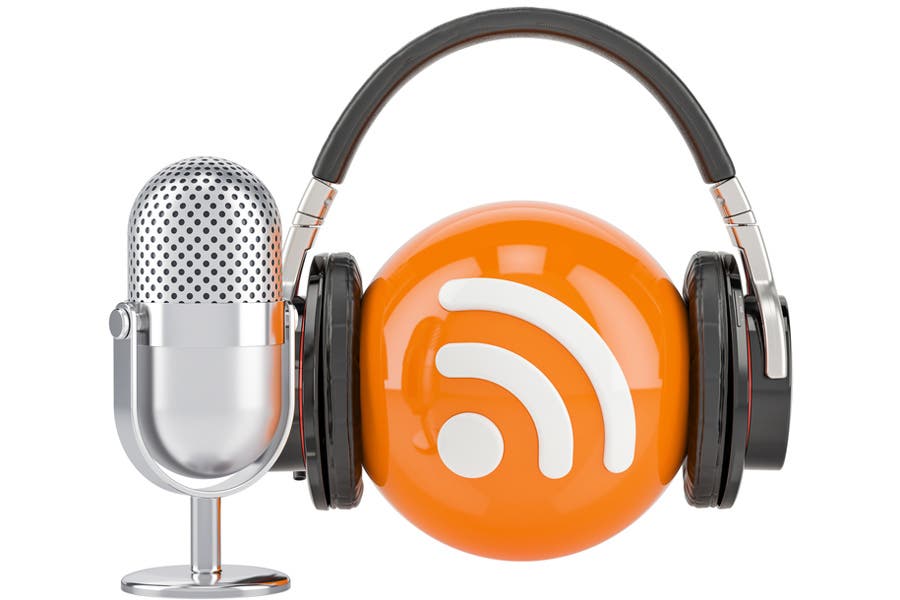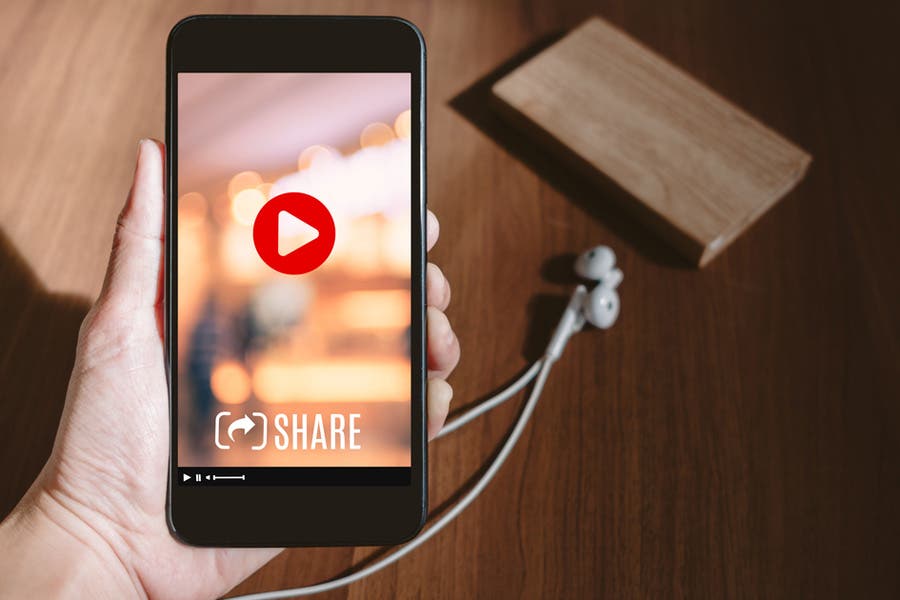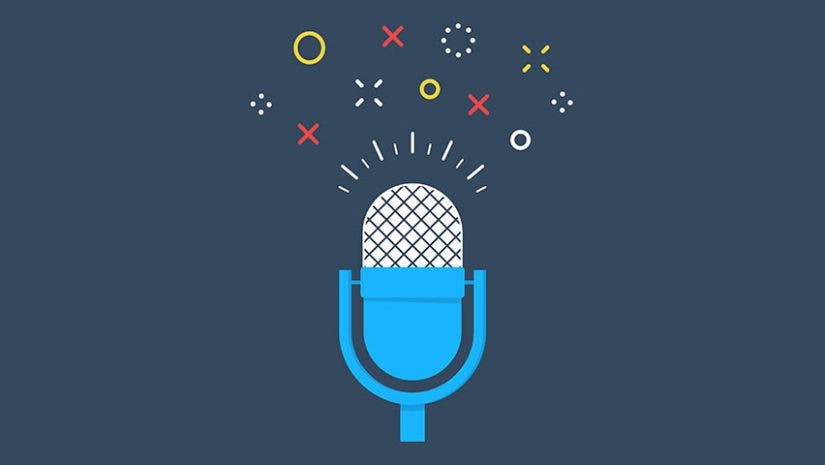When starting a podcast, it’s normal to spend most of your time and effort in choosing the right podcast equipment and editing your audio until it’s good enough for publishing. However, what people don’t always realize is that the real uphill battle comes after that: getting people to actually listen. That’s why you need a plan for how to promote a podcast.
Knowing how to market a podcast is key, especially in the beginning when you don’t really have a following yet. Once you’ve published your shows, you’ll need a pretty solid plan to actually get people to consume your content—and we’ve got it all laid out for you below.
The following strategies have worked wonders for many of today’s successful podcasters, but you may customize the plan according to what you think is the best for you and your show. With these tips and strategies, you’ll be able to increase your podcast’s visibility and downloads (and maybe even earn money from them) even if you’ve never promoted a podcast before.
12 Ways to Promote Your Podcast

Get on iTunes
There are lots of podcast directories you can submit to, like Spotify and Google Play Music, but you’ll want to learn how to start a podcast on iTunes for maximum exposure. According to several notable podcasters, Apple Podcasts is really where most of the podcast listening happens, which is why you’ll want to make it the main channel to focus on to help you gain attention and kickstart your growth.
If you’re a new podcaster, make joining the iTunes podcast directory one of your top priorities.
Of course, you’ll also want to explore how to start a podcast on Spotify to maximize audience reach.
Promote on social media
Even if you didn’t read this article or another similar article online, you’re still likely going to promote a podcast on all your social media platforms. In this social media age, it’s pretty much common sense at this point. However, social media promotion does require a savvy approach in order to reap the benefits.
The great thing about using social media for promotion is that you aren’t limited to the people who follow you. If your post is interesting enough, people will likely share it on their own social media pages, which then allows you to reach more audiences. With that in mind, instead of just posting a plain link, create shareable media that’s more likely to garner likes and shares, like eye-catching images, video clips, or 5-second soundbites. Be creative!
Also, make sure to pin the post with the link to your podcast episode on Twitter and Facebook, and add it to your Instagram bio, so that it doesn’t get buried under your newer posts. You can also talk about behind-the-scenes stuff on your Facebook Messenger My Day and Instagram stories.
Kick off your promotion with a teaser 24 hours before your podcast goes live. A good schedule to follow is to promote as much as 3x on Twitter on launch day and 2x on Facebook during the first week.

Prepare multiple episodes for launch day
Seasoned podcasters reveal that the minimum is three episodes by launch date, but you may want to produce more (two episodes per succeeding week) so you can focus on uploading each episode, promoting them, and monitoring your growing audience in the next few weeks.
Before you launch your podcast, it helps to start promoting it with teasers so you can build your audience and then hook them with those prepared episodes.
Transcribe your audio
You’ll find that many successful podcasters offer full transcripts of their show on their blogs or websites. This strategy is definitely worth a try, especially since text can make you more findable on search engines, plus the transcription blog post can be a good place to collect leads (with integrated lead capture forms and links to your other pages).
To make things easier for you, you can seek online transcription services from sites like Rev.com or Fiverr. Your transcription blog post can also be formatted to be easier to read by only featuring highlights or excerpts with subheaders to cut chunks of text and including these in your show notes.
Repurpose your content into a YouTube video
Speaking of utilizing different forms of media to promote your podcast, you can repurpose your episode into a YouTube video so you can easily share it on social media platforms. You can even use YouTube’s automatic closed captioning and transcription if you’re not going to transcribe. If you don’t already have a channel, you’ll want to explore how to start a YouTube channel for your podcast.
Video podcasts will also attract those who have the time and freedom to watch the episode. It can even be a way to promote your YouTube channel if you have one! Make it more searchable on search engines (for SEO) by naming it “Interview with…” or by utilizing a good, keyword-rich title.

Submit your show to “podcatchers”
Podcatchers are simply apps that play podcasts. The Apple podcast app is the most popular one, but you’ll want to have your show on other apps to gain as many listeners as possible. You can submit your podcast to the following apps:
By being on iTunes, your podcast will automatically be listed on the PodcastLand app, where you get the chance to be featured as their podcast of the month. It helps to try each app for yourself and see which ones are getting you the most traction.
Boost your numbers early on
Behind the success of podcasts is this: a good influx of downloads and good reviews in the first few weeks that drove them up the iTunes charts. This is exactly what you want for your podcast. And if you even want your podcast to get to iTunes’ New and Noteworthy list, you’ll have to do very well during the first two weeks.
What seasoned podcasters do is they throw a “party” filled with little marketing strategies during the first couple of weeks after the podcast launch. Here are a couple of ideas:
- Publishing two weeks of podcast-themed blog content on your site
- Getting the rest of your team to post and tweet about the show
- Emailing at least 10 contacts per day
- Throwing an actual party on launch day (in-person or via live video streaming)
- Running giveaways (more about this below)
Of course, you can make up your own strategies, as long as it will help encourage downloads and listeners to leave good reviews on your iTunes podcast page.
Run a giveaway contest
To boost the social proof on your podcast and hopefully get iTunes to notice it, you’ll need a lot of reviews. Fortunately, there is a tried-and-tested way to garner genuine reviews (and fast!) without having to beg for it: hold a giveaway!
Giveaways have long been an effective tool for online creators and influencers to grow their following. The premise is simple—anyone who wants to join simply has to write a comment, subscribe, leave a like, or share your post, and they’re automatically entered. In your case, one entry requirement that would be beneficial for you is to have your listeners leave a review of your podcast on iTunes.
And of course, make sure to offer prizes that are exciting and appealing. They can be products and/or services related to your content, like a free smartwatch for tech-related podcasts or an all-inclusive spa day for shows that talk about health and wellness.

Find partners to promote your podcast
We all need a little help—especially in the beginning. Don’t hesitate to give shoutouts to brands and other podcasters in your show. It’s not a sure thing, but they may reciprocate the gesture. Start with podcasts in your niche as this can lead to collaborations down the road, and it typically makes more sense for podcasters to collaborate with others in the same niche.
Or, when you see a connection between your podcast and another brand in terms of your advocacy or educational topic, you can reach out to them by email to propose a friendly x-deal where you promote each other to support your mutual cause. This sort of cross-promotional strategy is essentially a win-win situation for you both!
Tap into other people’s audiences
Reach out to people (not just other podcasters, but anyone with any sort of influence online) and ask them to be on your show. The idea of this strategy is to tap into your guest’s demographic. Obviously, it would be particularly helpful for your promotion efforts if the interviewee or guest you choose to invite has way more followers and fans than you do, but it would still be beneficial even if they have the same numbers as you do (or even a little bit less) but have an entirely different target audience that you think will potentially like your content as well. For example, if you’re doing a photography podcast, ask experts or instructors of photography classes to appear on your show.
And of course, don’t forget to promote the actual podcast episode—both before it airs and after it’s gone live. Your guest will likely want to help you promote to their own fanbase, so we suggest you create snippets, quote images, and other attention-grabbing media that your guest can easily share on their own platforms.
Guest star on other people’s podcasts
Of course, the easiest way for other podcasters to “promote” you is for you to be a guest star on their show. Many podcast platforms actually encourage podcasters to collaborate as it presents the opportunity for both (or more!) podcasters to increase their following.
It might be awkward for beginners to even find podcast “friends” they can collaborate with but many hosts actually appreciate it when others reach out to team up for a show. Not only will it help them gain more listeners, but it will also give them some material for an upcoming episode.
Strive to be on iTunes’ New & Noteworthy list
Those who want to be highly visible within iTunes should aim to be part of their New & Noteworthy section. As previously mentioned, your show only gets a few weeks—eight weeks or two months, to be exact— for it to get there before it goes back to the regular podcast listings. It seems iTunes bases their picks heavily on the number of subscribers, downloads, and reviews that happen following the launch.
Therefore, if you’re aiming for maximum visibility for your podcast, consider this challenge and pick among the abovementioned strategies (or just do all!) to help you achieve this ultimate goal.
Promoting a podcast certainly involves a lot of work. We hope these methods will help you reach your show’s highest potential. But if your show is already great, we’re sure promoting it would be a breeze. Good luck!






